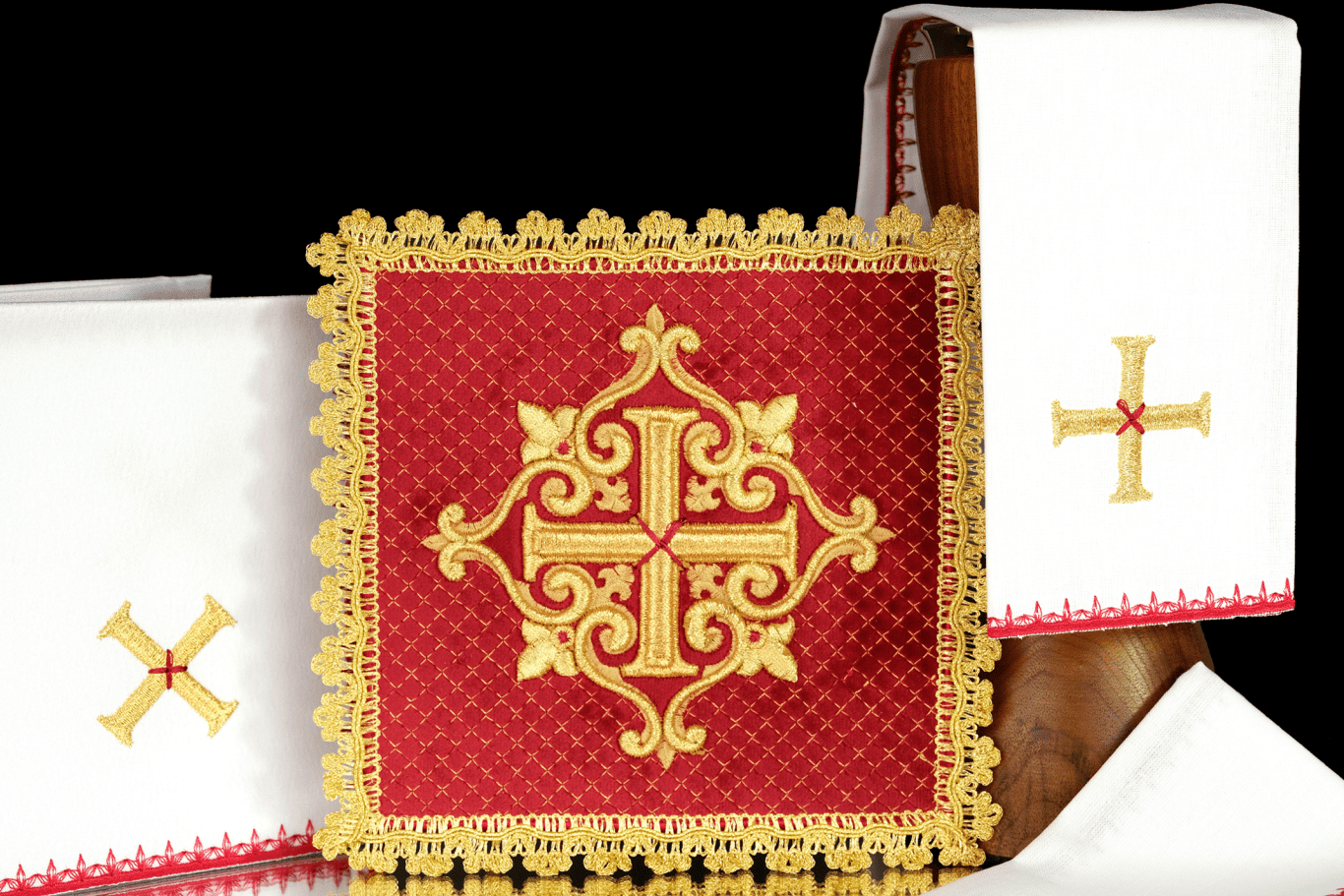
Parish Office: Organization of Work and Communication
Parish Office - Organization of Work and Communication
How to effectively manage the heart of the parish?
The parish office, often referred to as the "heart of the parish," plays a key role in its daily functioning. It is where the most important administrative, documentary, and communication processes are concentrated, ensuring smooth relations between the faithful, the clergy, and external institutions. A well-organized office guarantees order, transparency, and effective service to the needs of parishioners. In this article, we will look at the issues of work organization and communication in the parish office, presenting practical tips and solutions that can improve its operation.
What is a parish office?
Definition and main functions
The parish office is the administrative center of the parish, which deals with maintaining documentation, serving the faithful, correspondence, and other administrative tasks related to the life of the parish. Its basic functions include:
- Maintaining baptismal, marriage, and death registers.
- Preparing and archiving parish documentation.
- Serving the faithful: providing information, issuing certificates, receiving applications.
- Managing incoming and outgoing correspondence.
- Communication with the clergy, organist, parish council, and other bodies.
- Organizing the work of the parish clerk/secretary.
- Supporting the organization of parish events.
- Maintaining financial documentation and settlements (often in cooperation with accounting).
Organization of work in the parish office
Effective management of duties and time
Efficient work organization in the parish office is the basis of its effective operation. This requires a thoughtful division of tasks, setting priorities, and rational time management. Here are the key aspects of work organization:
1. Clear division of duties
If more than one person works in the office (e.g., the parish priest, vicar, clerk, volunteers), it is crucial to clearly define who is responsible for which tasks. An example division may include:
- Parish Priest: Supervision of the whole, signing documents, representing the parish.
- Vicar: Support in current administrative matters, serving the faithful.
- Clerk/Secretary: Maintaining registers, archiving, handling correspondence, direct communication with the faithful.
- Volunteers: Assistance with less complicated tasks, e.g., distributing announcements, helping with organizing events.
2. Setting priorities
Not all tasks have the same degree of urgency. It is necessary to distinguish between tasks:
- Urgent and important (e.g., preparing a baptism certificate, urgent response to a question from the bishopric).
- Important but not urgent (e.g., archiving documentation, planning pastoral visits).
- Urgent but not important (e.g., some phone calls or visits that can be postponed or redirected).
- Unimportant and not urgent (e.g., tasks that can be delegated or abandoned).
Effective priority management allows you to focus on the most important tasks and avoid wasting time on less important things.
3. Documentation management
Archiving and storing documents
The parish office collects a number of important documents, so it is crucial to ensure their safe storage and easy access. You should take care of:
- Systematic organization: Documents should be regularly sorted and cataloged according to specific criteria (e.g., type of document, year, person).
- Safe storage: Registers and other key documents should be stored in secure cabinets or archives, protecting them from destruction, theft, or accidental access.
- Digitization: If possible, it is worth considering digitizing important documents. Scanning registers, parish announcements, or financial documentation can significantly facilitate their storage, retrieval, and sharing, while creating backup copies.
Electronic document flow
In modern offices, electronic document flow is becoming increasingly important. It allows for:
- Faster information retrieval.
- Facilitating access to documents from various locations (e.g., by a priest from home).
- Reducing paper consumption.
- Better control over document versions.
It is worth considering implementing a document management system (DMS) or using cloud solutions for data storage.
4. Planning and scheduling
Regular work planning, creating schedules of activities (e.g., pastoral visits, preparations for holidays, collecting data for reports) helps in maintaining order and preventing chaos. You can use calendars, task lists, or specialized software.
Communication in the parish office
Building positive relationships with the faithful
The parish office is often the first point of contact for the faithful with the parish. Therefore, skillful and effective communication is so important. It should be characterized by:
- Courtesy and respect: Every contact with a believer should be marked by kindness and respect for their dignity.
- Professionalism: Even in the case of difficult questions or problems, you should remain calm and try to provide a reliable answer or refer to the appropriate person.
- Clarity: Information provided to the faithful should be understandable and easy to assimilate.
- Accessibility: The office should be available during established hours, and contact information (phone, e-mail address) should be easily accessible to the faithful.
Communication channels
The modern parish office should use a variety of communication channels to reach as many believers as possible:
- Direct contact in the office: Personal visits of the faithful.
- Phone: Quick provision of information and receiving applications.
- E-mail: A convenient way to provide information, ask questions, and receive answers, especially in more complex matters.
- Parish website: Publishing announcements, schedules, information about events, contact forms.
- Social media: Supplementing traditional channels, informing about current events, building community.
- Notice boards: A traditional but still important way of informing about parish matters.
How to improve communication?
1. Creating a database of the faithful
As far as possible and with respect for personal data protection regulations, it is worth creating a database of the faithful, which will facilitate communication in the event of important announcements, invitations to celebrations, or collecting data for parish censuses. However, it should be remembered that it is necessary to obtain consent and ensure the security of this data.
2. Regular updates of information
Information on the website, social media, and notice boards should be updated regularly. It is always worth providing the time and date of the last update so that the faithful can be sure that they are receiving the latest data.
3. Staff training (if applicable)
If lay people work in the office, it is worth providing them with appropriate training in customer service, communication, basic legal regulations, and the specifics of working in the parish.
4. Implementation of a CRM (Customer Relationship Management) system
Although it may seem advanced, simple CRM systems can help manage contacts with the faithful, the history of their applications, and interactions with the parish. Even spreadsheets can serve as a basic CRM tool.
Internal communication
One cannot forget about efficient internal communication between members of the parish team (parish priest, vicars, organist, church warden, clerk). Regular meetings, clear communication channels, and openness to dialogue are key to the harmonious functioning of the parish.
Tools and technologies supporting the work of the office
Parish management software
There are specialized computer programs available on the market designed for managing parishes. They usually offer modules for:
- Maintaining registers.
- Managing data of the faithful.
- Handling donations and contributions.
- Creating financial reports.
- Managing parish events.
- Supporting communication.
Examples of programs include Parafia Plus, Sacro. It is worth considering their implementation if the parish resources allow it.
Office and communication tools
- Office suite: Microsoft Office (Word, Excel, Outlook) or free alternatives (LibreOffice, Google Workspace).
- Scanning and OCR programs: Enabling the conversion of scanned documents into editable text.
- Online communication platforms: Such as Slack or Microsoft Teams, which can improve internal communication.
- Task management systems: Trello, Asana, Todoist.
- Backup tools: Ensuring data security.
Summary - How to create an effective parish office?
The parish office is a dynamic center of parish life, which requires constant care for its organization and quality of communication. The key to success is systematicity, professionalism, openness to new technologies, and above all - a spirit of service and kindness towards every believer. Good management of the office not only improves the daily functioning of the parish but also builds stronger bonds between the faithful and their church community.
Product recommendation:
If you are looking for solutions to facilitate the organization of parish work, it is worth considering modern IT systems dedicated to parishes, which integrate many administrative and communication functions. To improve the comfort of working with documents, we also recommend high-quality scanners and professional document management programs. Remember that a well-organized office is an investment in a more efficiently functioning and more friendly parish. You can find vestments and church goods on haftinausa.com.
```




